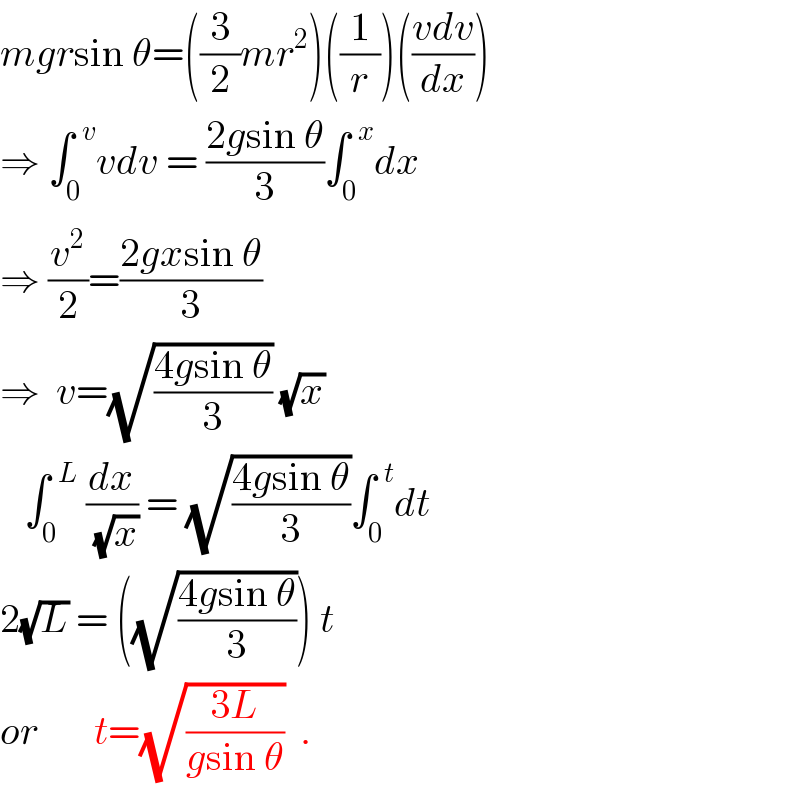
Question and Answers Forum
Question Number 31292 by ajfour last updated on 05/Mar/18

Commented by ajfour last updated on 05/Mar/18

Commented by mrW2 last updated on 07/Mar/18

Commented by ajfour last updated on 07/Mar/18

Answered by ajfour last updated on 07/Mar/18

Commented by ajfour last updated on 07/Mar/18

Commented by rahul 19 last updated on 08/Mar/18

Commented by mrW2 last updated on 08/Mar/18

Commented by rahul 19 last updated on 08/Mar/18

Commented by mrW2 last updated on 08/Mar/18

Commented by rahul 19 last updated on 08/Mar/18

